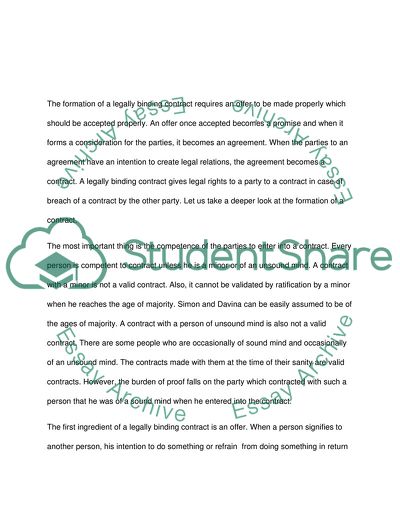Cite this document
(“Creating of a Legally Binding Contract Essay Example | Topics and Well Written Essays - 2500 words”, n.d.)
Creating of a Legally Binding Contract Essay Example | Topics and Well Written Essays - 2500 words. Retrieved from https://studentshare.org/law/1747727-explain-to-simon-what-the-requirements-and-contents-of-a-legally-binding-agreement-are-and-what-action-he-could-take-if-davina-tries-to-renege-on-the-deal
Creating of a Legally Binding Contract Essay Example | Topics and Well Written Essays - 2500 words. Retrieved from https://studentshare.org/law/1747727-explain-to-simon-what-the-requirements-and-contents-of-a-legally-binding-agreement-are-and-what-action-he-could-take-if-davina-tries-to-renege-on-the-deal
(Creating of a Legally Binding Contract Essay Example | Topics and Well Written Essays - 2500 Words)
Creating of a Legally Binding Contract Essay Example | Topics and Well Written Essays - 2500 Words. https://studentshare.org/law/1747727-explain-to-simon-what-the-requirements-and-contents-of-a-legally-binding-agreement-are-and-what-action-he-could-take-if-davina-tries-to-renege-on-the-deal.
Creating of a Legally Binding Contract Essay Example | Topics and Well Written Essays - 2500 Words. https://studentshare.org/law/1747727-explain-to-simon-what-the-requirements-and-contents-of-a-legally-binding-agreement-are-and-what-action-he-could-take-if-davina-tries-to-renege-on-the-deal.
“Creating of a Legally Binding Contract Essay Example | Topics and Well Written Essays - 2500 Words”, n.d. https://studentshare.org/law/1747727-explain-to-simon-what-the-requirements-and-contents-of-a-legally-binding-agreement-are-and-what-action-he-could-take-if-davina-tries-to-renege-on-the-deal.


